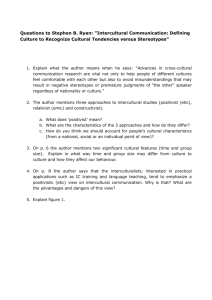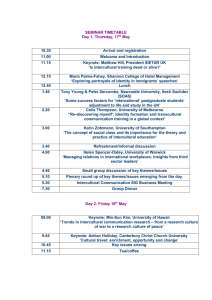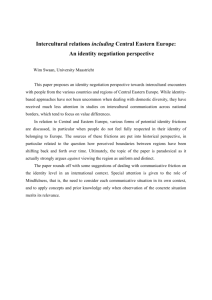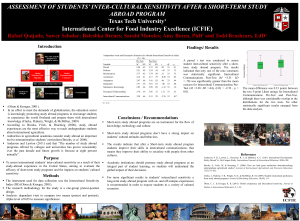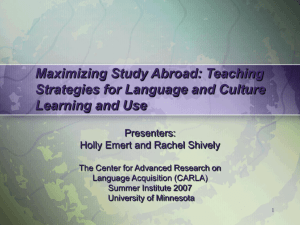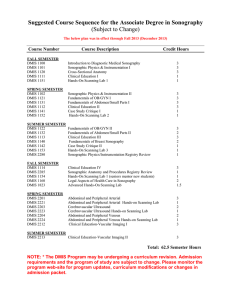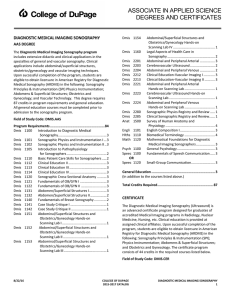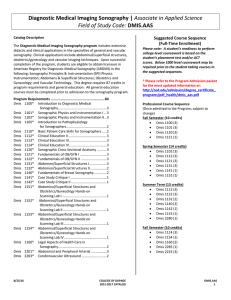SO - ISEP
advertisement
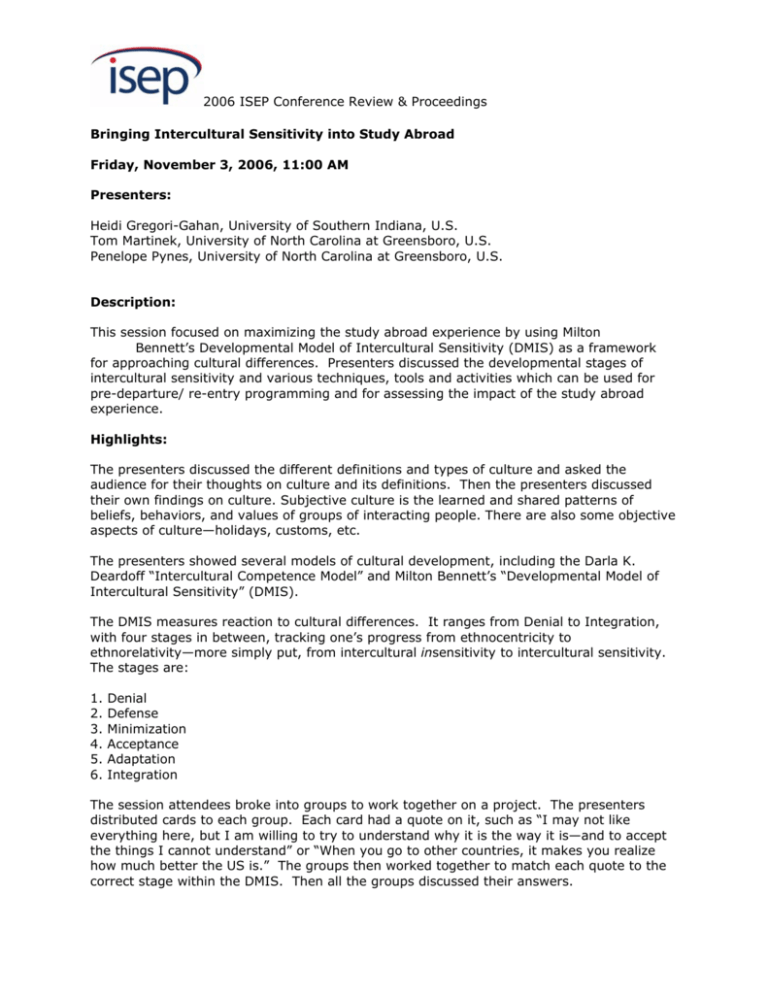
2006 ISEP Conference Review & Proceedings Bringing Intercultural Sensitivity into Study Abroad Friday, November 3, 2006, 11:00 AM Presenters: Heidi Gregori-Gahan, University of Southern Indiana, U.S. Tom Martinek, University of North Carolina at Greensboro, U.S. Penelope Pynes, University of North Carolina at Greensboro, U.S. Description: This session focused on maximizing the study abroad experience by using Milton Bennett’s Developmental Model of Intercultural Sensitivity (DMIS) as a framework for approaching cultural differences. Presenters discussed the developmental stages of intercultural sensitivity and various techniques, tools and activities which can be used for pre-departure/ re-entry programming and for assessing the impact of the study abroad experience. Highlights: The presenters discussed the different definitions and types of culture and asked the audience for their thoughts on culture and its definitions. Then the presenters discussed their own findings on culture. Subjective culture is the learned and shared patterns of beliefs, behaviors, and values of groups of interacting people. There are also some objective aspects of culture—holidays, customs, etc. The presenters showed several models of cultural development, including the Darla K. Deardoff “Intercultural Competence Model” and Milton Bennett’s “Developmental Model of Intercultural Sensitivity” (DMIS). The DMIS measures reaction to cultural differences. It ranges from Denial to Integration, with four stages in between, tracking one’s progress from ethnocentricity to ethnorelativity—more simply put, from intercultural insensitivity to intercultural sensitivity. The stages are: 1. 2. 3. 4. 5. 6. Denial Defense Minimization Acceptance Adaptation Integration The session attendees broke into groups to work together on a project. The presenters distributed cards to each group. Each card had a quote on it, such as “I may not like everything here, but I am willing to try to understand why it is the way it is—and to accept the things I cannot understand” or “When you go to other countries, it makes you realize how much better the US is.” The groups then worked together to match each quote to the correct stage within the DMIS. Then all the groups discussed their answers. 2006 ISEP Conference Review & Proceedings The University of Southern Indiana asks its international students to complete the “Intercultural Development Inventory,” (IDI) a 50-item test that measures 5 of the 6 stages of DMIS when they arrive on campus and again when they leave. It provides insight into the students’ progress along the path to integration. The presenters also shared Anelise Hofmann’s Study Abroad Self-Evaluation form, a form that students can complete once their study abroad is over. This survey can also be a valuable tool in measuring progress. Over the course of the session, attendees shared ideas for how to encourage and foster intercultural sensitivity in their students. The session was an excellent discussion on the different ways of measuring intercultural sensitivity in study abroad students.

